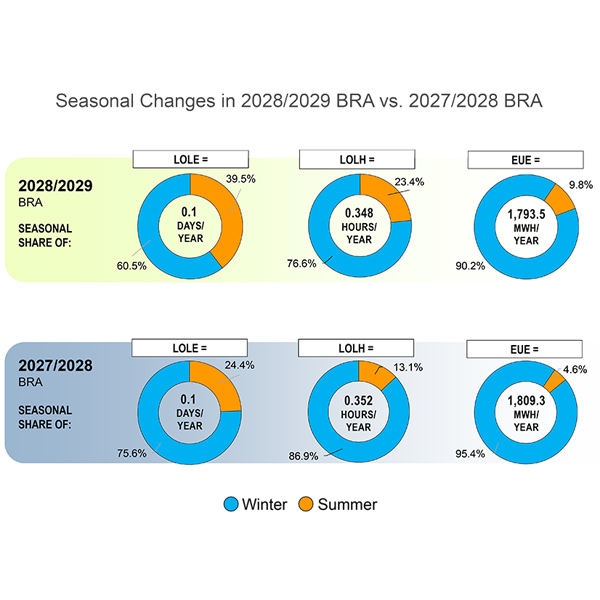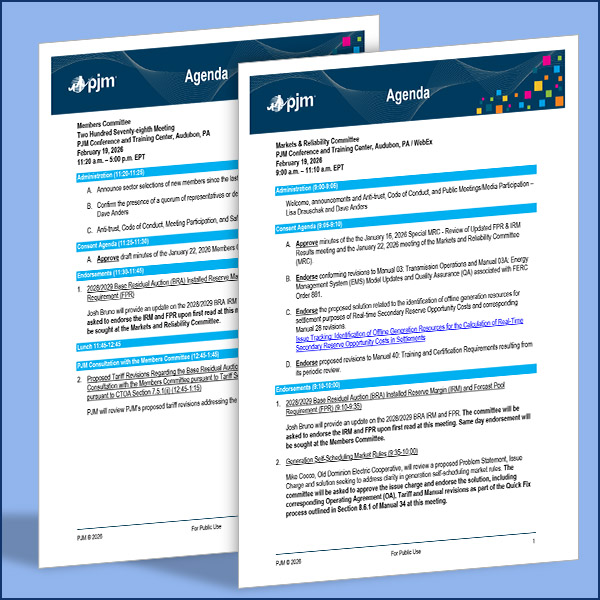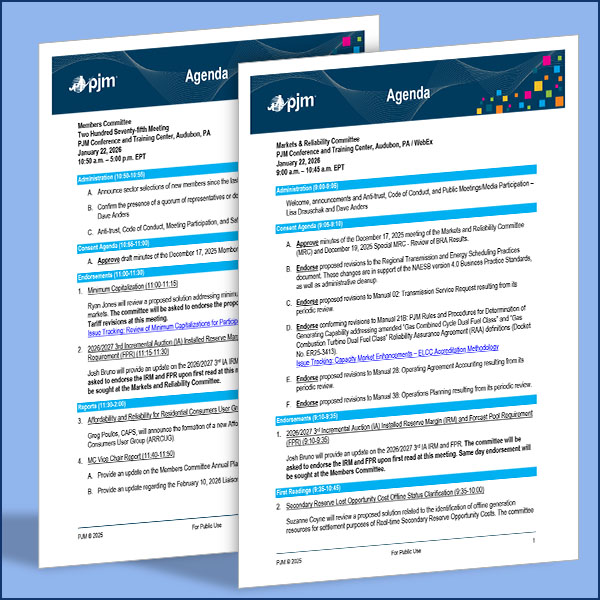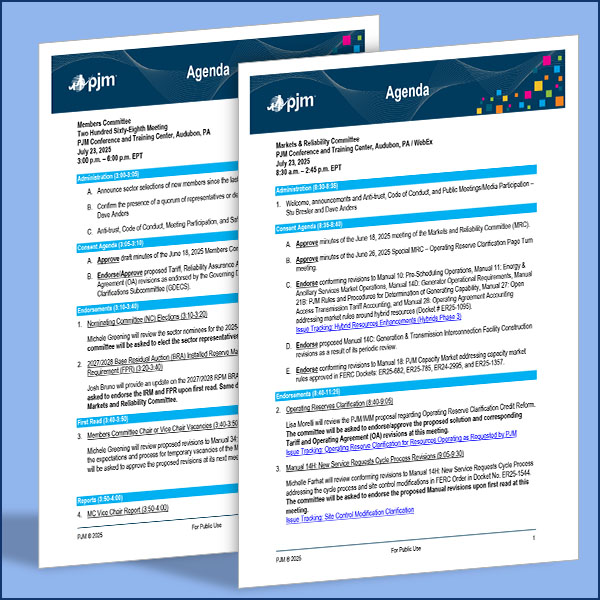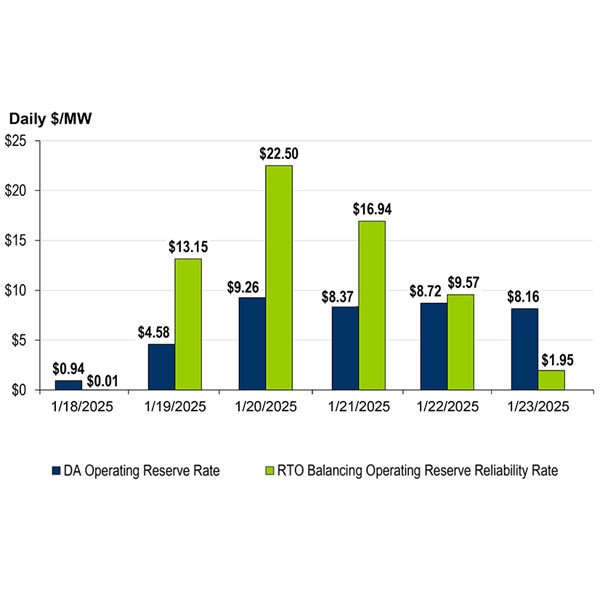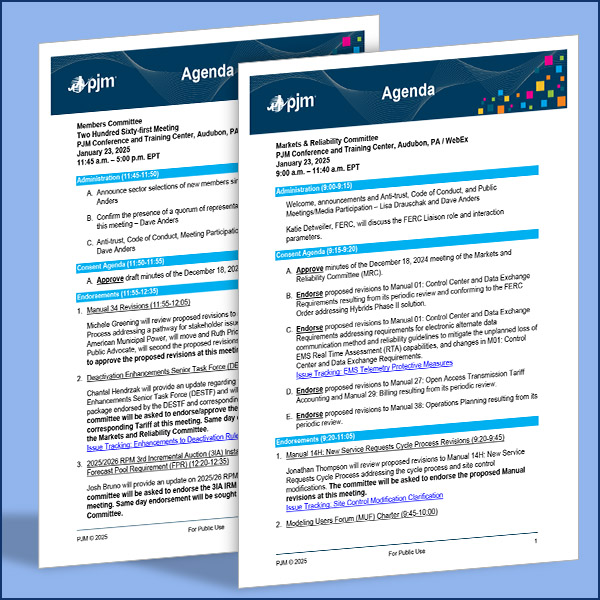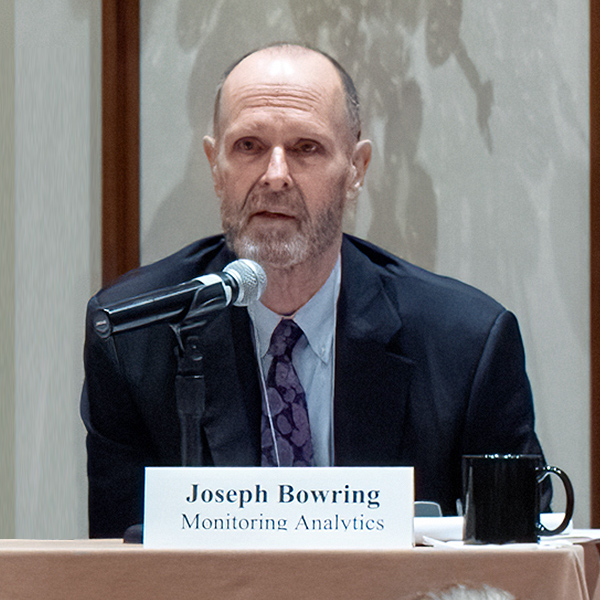Installed Reserve Margin (IRM)
Stakeholders endorsed PJM’s recommended installed reserve margin and forecast pool requirement for the 2028/29 Base Residual Auction at the Markets and Reliability Committee meeting.
PJM's Markets and Reliability Committee and Members Committee will be asked to endorse the recommended IRM and FPR values for the 2028/29 BRA.
The PJM Markets and Reliability Committee and Members Committee endorsed the RTO’s recommended installed reserve margin and forecast pool requirement for the third 2026/27 Incremental Auction.
A summary of the agenda items scheduled to be brought to a vote at the PJM Markets and Reliability Committee and Members Committee meetings.
Stakeholders rejected the installed reserve margin and forecast pool requirement values recommended by PJM staff, with some opposed arguing that the inputs remain nebulous.
PJM will present its recommended forecast pool requirement and installed reserve margin for endorsement by the Markets and Reliability and Members committees.
NYISO is proposing changes to certain capacity market parameters to accommodate the Champlain Hudson Power Express transmission project, as well as facilitate the new entry of resources.
The Markets and Reliability Committee endorsed PJM's recommended installed reserve margin and forecast pool requirement values for the 2026/27 Base Residual Auction.
Among other actions, the PJM Markets and Reliability Committee and the Members Committee will consider endorsing various manual revisions.
PJM’s Andrew Gledhill presented a proposal to the Planning Committee to revise the installed reserve margin and forecast pool requirement for the third 2025/26 Incremental Auction.
Want more? Advanced Search
